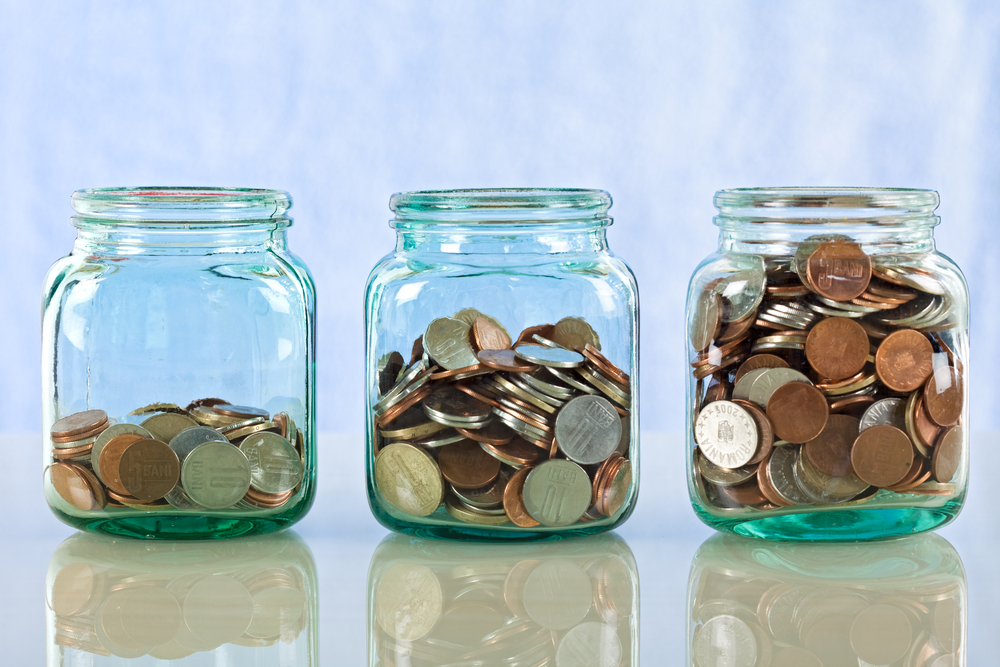THE RELEVANCE OF “A PENNY SAVED IS A PENNY EARNED” TODAY
Saving money is a time-honored habit which helps people have funds for both the rainy and sunny days, for the future, and simply to stay financially afloat and have accessible cash when they need it. Hundreds of thousands of books and websites can be accessed nowadays to boost one’s saving activities. When we speak of saving money, the idea refers to safekeeping not only the paper bills but also the coins. However, the general attitude of modern savers is to keep the paper money aside and to leave the coins behind. This kind of savings mentality which shows negative bias towards the coins should not be the case.
“A penny saved is a penny earned” is a popular wise remark by one of America’s forefather, particularly Benjamin Franklin. This is true and should be considered by today’s savers. The minting of coins costs money the same as the printing of the paper bills by the Federal Reserve. Furthermore, both these forms of currencies have value. So why do people just toss the penny, nickel, dime, and quarter, dismissing them out of their financial lives? A common reasoning is that individual coins cannot purchase anything. Also, some of them are mutilated already and are reckoned worthless. Other people find coins annoying and reason out that they use credit cards or make mobile payments most of the time, making these coins irrelevant. Finally, people think these coins are not worth the weight and should just be disregarded.
A comparative international survey by multinational bank ING in February 2017 found that the US was near the top of the cashless table at 34%. Americans are reported to appear least likely to carry cash as they’re more inclined to use alternative payments like cheques, credit and debit cards, mobile wallets, and other e-payments technologies like mobile apps on a tablet, smartphone, or a wearable device. Yet, in the same survey, a majority of Americans – 75% – responded that they will never go cash-free or cashless. And if this is the case, then, saving the paper bills should also mean saving the coins.
Apparently, people misunderstand and ignore the importance of these coins. Given this scenario, it is about time that they realize the significance of saving them. If you’re strolling on the road or at the mall and you stumble upon a penny or coin of whatever value, pick it up. Put it straight into your pocket. You have “earned” it. Then, once at home, find a lovely jar or a creative container. Label it “The Lucky Coins Jar”. Put it on the center table where you can easily see it gradually be filled to the brim. Make it as your living room’s centerpiece. Due to the dismissive attitude of the public towards these coins, if you begin this habit now and check on it after a year, you will find your jar filled with these “lucky coins” already. And you will realize, after tallying all of them, that you have accumulated a certain amount which you can use in several ways, and among them are:
1) First, the contents of the “Lucky Coins Jar” can be used as payment in grocery stores. Grocery receipts would normally have some loose change needed and, if you choose to pay by cash, you can use your “lucky” pennies, dime, nickel, and quarter to settle this minute amount. Then, the items you checked out are settled, officially yours, and you are therefore cleared to leave the supermarket.
2) Another way is to use these coins when paying at the toll booth. Some cities or states require a tiny amount of money to be settled at a toll booth before you can enter their areas.
3) Third, visit your bank and deposit this sum regardless of the amount. They would surely help in augmenting your savings account no matter what. Besides, the bank interest rates for a typical savings account is so small. So why not help your bank account by adding these “lucky” money?
4) Fourth, if you have young children or little siblings, be their financial educator by depositing those “lucky coins” in their piggy banks. After all, the modern world demands people as young as school-age to understand the value of money and of saving it. You will be able to help these members of the young generation to understand early in their lives the concept of saving money and its massive significance. Moreover, you’re molding them into becoming responsible savers which is better than learning the value of saving money later in their lives when it’s already too late as they’re already in dire financial situations.
5) Fifth, consider the habit of keeping the “Lucky Coins Jar” as a form of patience training. Contemporary people lack patience. They have this “got to have it” and “right here, right now” outlooks which are unhealthy for their heart and generally detrimental to their well-being. Watching the “Lucky Coins Jar” slowly get filled to the brim helps you understand that regardless of their small amount, you will be able to make it to filling the jar eventually and that’s for sure (given the people’s dismissive attitude towards coins) and using the contents for worthwhile purposes later on. The value of patient eventuality is gained which is healthy for your heart and mind. You will learn to appreciate your life more and feel pleasant, too. Besides, the “Lucky Coins Jar” is such a pretty sight to see.
6) Finally, you can use the contents of your “Lucky Coins Jar” in increasing the funds in charitable institutions. You can bring your jar there and talk to their personnel about your initiative to support them by donating the coins you’ve accumulated. They will definitely be grateful for your benevolent gesture.
The accumulation of stray coins from the sidewalk, the mall, and other public places can, indeed, make a difference, if not, do great wonders. You’re facilitating the re-entry of these coins into the financial system which is important and helps the latter function properly. Again, these coins have value — both their production and when you use them. It’s about time that the federal government, concerned institutions, and citizens provide useful and serious financial education to the general public which should include saving “lucky coins”. Remember, a penny saved is a penny earned. If you begin this habit now and keep it as a mainstay to the financial side of your life, notice how much coins you will “earn” and the benefits they will provide not only to you but to your community. Sites like Movablemark will guide you in regards to financial concern.
By Sheena Ricarte, Freelance Finance Journalist












